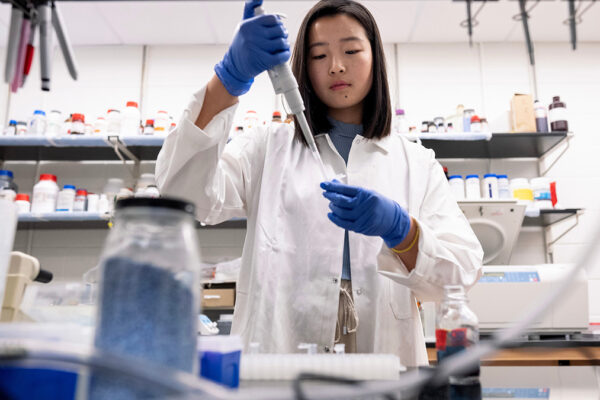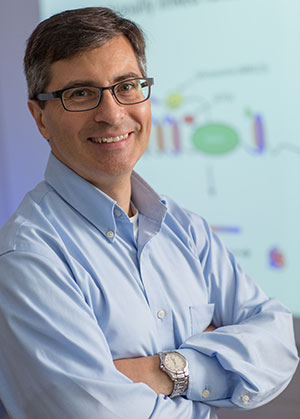MD, PhD
G. Denman Hammond Professor of Childhood Cancer
Co-Leader, UNC Lineberger Cancer Genetics Research Program
Chief, Division of Pediatric Hematology-Oncology
Associate Director, Cancer Epigenetics Training Program
UNC-Chapel Hill
Cancer Genetics
Area of Interest
I am interested in the application of integrated genome-wide approaches to identify the epigenetic and chromatin biology consequences of genetic alterations in human cancers. Primary foci of the lab include Ewing sarcoma in which we explore the mechanism through which the necessary chromosomal translocation-derived fusion oncoprotein EWSR1-FLI1 regulates chromatin states and target genes. We also are evaluating the effect of mutations in the histone methyltransferase SETD2 and the chromatin remodeling complex member PBRM1 in clear cell renal cell carcinoma. Because of our expertise in epigenomics, we also collaborate with labs across the campus studying other cancers and developmental disorders.
Awards and Honors
- Dick Vitale Pediatric Cancer Research Fund, The V Foundation, 2023
- G. Denman Hammond Professorship for Childhood Cancer
- Martin D. Abeloff V Scholar Award
- Rita Allen Foundation Scholar
News and Stories

Summer funding supports student’s cancer research
UNC-Chapel Hill senior Anna Jin spent her summer in the lab of pediatric oncologist Ian Davis, MD, PhD, researching the use of cancer patients’ own cells to treat Ewing sarcoma.

Ian Davis awarded $1 million by V Foundation
UNC Lineberger's Ian Davis, MD, PhD, was awarded $1 million by the The V Foundation to support his work to improve CAR-T therapy for pediatric solid tumors.

